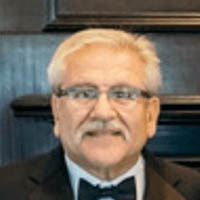Braddock Felony Lawyer, Pennsylvania
Sponsored Law Firm
-
 x
x

Click For More Info:
-
Sean Logue & Associates
429 4th Ave. Suite 1601 Pittsburgh, PA 15219 » view mapDUI, Sex Crimes, Drug Crimes, Expungements Phones Answered 24 Hours A Day
Our lawyers bring a thorough understanding of criminal issues to help minimize the damage that a DUI charge can bring to our clients.
412-389-0805  Sean Logue Pittsburgh, PA
Sean Logue Pittsburgh, PAAttorney At Law - Pennsylvania, 2008
West Virginia, J.D. - 2007
 Google+
Google+Visit us and follow on Google+ to interact on social media.
 Contact UsEmail or Call 24/7
Contact UsEmail or Call 24/7Free initial consultation. Contact us today.
Not enough matches for Braddock Felony lawyer.
Below are all Braddock Criminal lawyers.
Jeffrey S. Weinberg
✓ VERIFIEDCriminal, Accident & Injury
Jeffrey Weinberg is a practicing lawyer in the state of Pennsylvania. Mr. Weinberg received his J.D. from Duquesne University.
Barry J Palkovitz
Real Estate, Traffic, Criminal, Personal Injury
Status: In Good Standing Licensed: 39 Years
Barry J Palkovitz
Traffic, Transportation & Shipping, Criminal, Personal Injury
Status: In Good Standing


 Sean Logue Pittsburgh, PA
Sean Logue Pittsburgh, PA Contact UsEmail or Call 24/7
Contact UsEmail or Call 24/7

